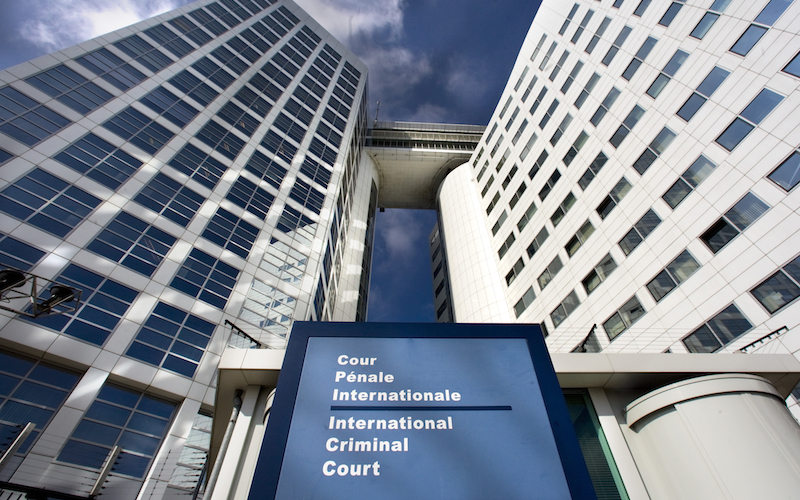
China Should Be Concerned About the Hague Tribunal
On October 29th, in a unanimous decision, the Permanent Court of Arbitration at The Hague issued its first, preliminary ruling concerning whether the Tribunal has ‘jurisdiction’ over the issues raised by the Philippines against China’s so called ‘nine-dash line’ in the South China Sea. The Tribunal held that in about half of the Philippines’ fifteen claims, it did have jurisdiction. The other claims will be treated as jurisdictional questions fused with the merits of the case, and the Tribunal will be rendering a final award in 2016. The Tribunal’s preliminary award on jurisdiction and admissibility should prove to be a clear victory for international law, as well as a clear defeat for Chinese unilateralism.
Given that the award was designed to address threshold issues about jurisdiction, it quickly led to a belief among those in Beijing that The Hague court will eventually be deciding against Chinese interests. Last week, Beijing’s vice foreign minister aired similar concerns. Many observers see this as a perfect test case for a rules-based approach to managing future regional conflict. It may well also set the stage for reigning in China’s ‘unique’ interpretation of international maritime law, which ignores nearly universally held concepts of territorial boundaries, Exclusive Economic Zones, and freely navigable international waters.
Had the Hague Tribunal denied itself jurisdiction, it would have legitimized China’s effective occupation of the South China Sea under a claim of ‘historical rights,’ based on old historical maps that did not encompass modern maritime law.
An adverse ruling would likely have emboldened China to go even further than it already has in the South China Sea and claim rights to other bodies of water, as if they were a natural extension of China’s land mass.
Surrounding littoral states would thereafter be forced to pursue a naval arms race as the next best option under concepts of self-help. Japan did just that, in September, with a reinterpretation of the country’s post-war constitution to remove limitations on overseas combat. The Japanese Self Defense Forces may now provide limited defense assistance for its allies – a move clearly driven by a concern about China’s unilateralism in the South China Sea.
There is no doubt that the arbitration case is taking place within the context of a larger set of diplomatic and regional issues between China and six other parties to the South China Sea dispute. The Tribunal took the position that a portion of those issues (maritime entitlement issues only) can be subject to a compulsory ruling under the UN Convention of the Law on the Sea (UNCLOS). This will mean that UNCLOS, a regime which is referred to as the ‘constitution of the seas and oceans,’ will shape and inform greater regional diplomatic questions which happen to bear little relation to UNCLOS. The Tribunal was thus able to advance the notion that UNCLOS regimes can produce ripple effects that may positively shape grander, unrelated outcomes in regional and international relations.
China must now be concerned about whether, and how much, a ruling against it may spill over to other maritime issues occurring between it and other countries in other seas. This is particularly the case with Japan regarding disputes over the Senkaku/Diaoyu Islands, as well as whether China can proceed with the construction of offshore gas platforms in the East China Sea.
Since the ruling, China has made no change in its posture that the South China Sea is part of its territory. It seems clear, however, that Beijing fully understands the potential impact of international tribunals on its ability to project its power abroad on its own terms, which is why it did not agree to take the matter with the Philippines to The Hague in the first place. This is the first time China is facing international legal scrutiny over its extra territorial activity. The initial Chinese reaction to the ruling reveals that China continues to struggle to come to terms with the operation of compulsory norms and processes of public international law, especially vis-a-vis treaties to which it belongs, such as UNCLOS.
It looks increasingly likely that China will lose in The Hague next year. If so, it is fair to ask whether Beijing will rise to the occasion and be a graceful loser or remain obstinate in the face of overwhelming opposition to its actions in the South China Sea. China’s maritime disputes in Asian waters will ultimately prove to be a litmus test for whether China will act as a responsible member of the international community, willing to engage other contestants in a rules-based regime in accordance with established norms of international relations and diplomacy, and consistent with a nation of its importance and stature. This was, and remains, China’s challenge.
This article was originally posted in The Huffington Post.

